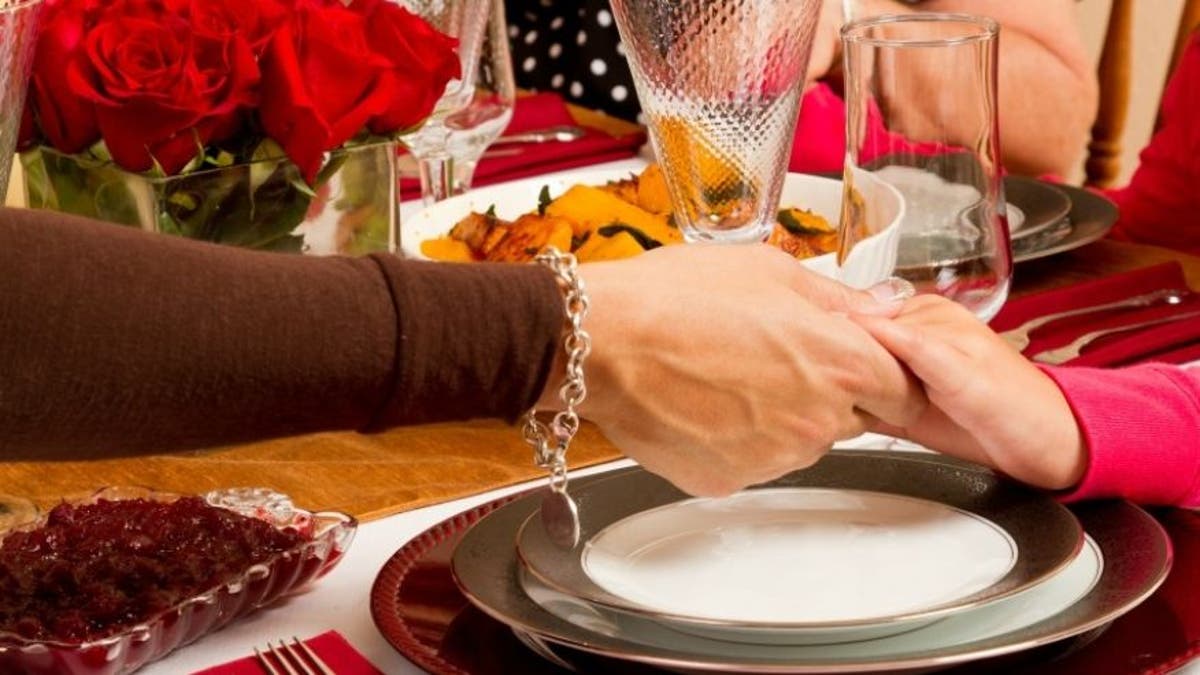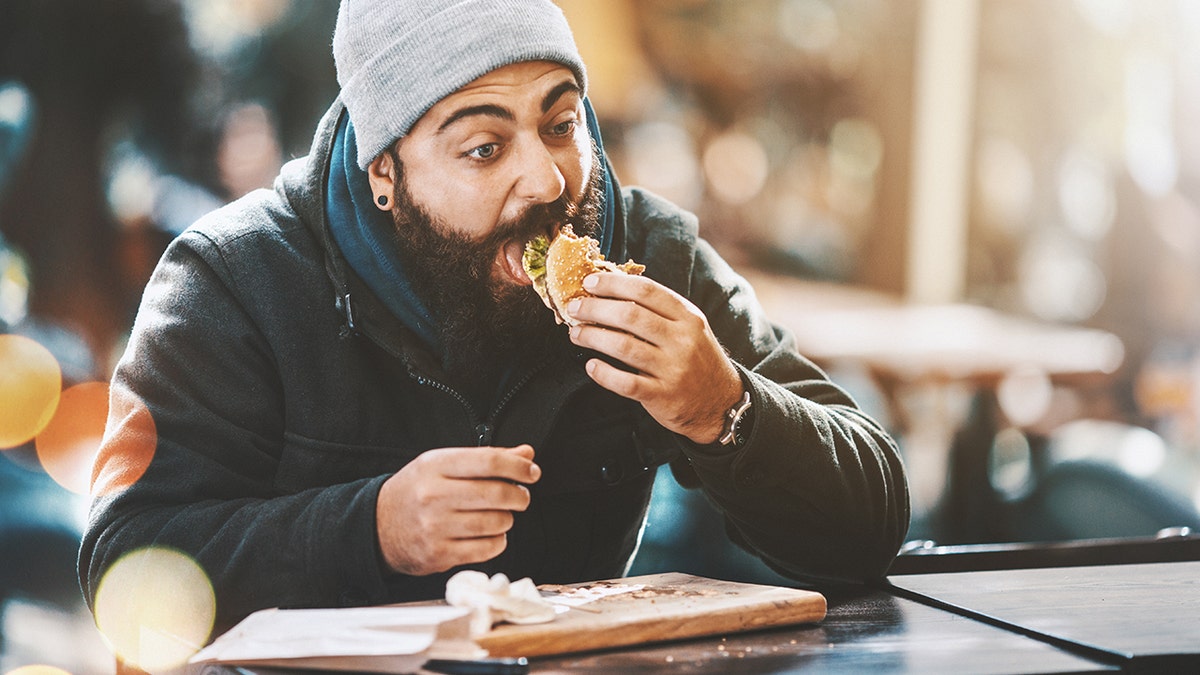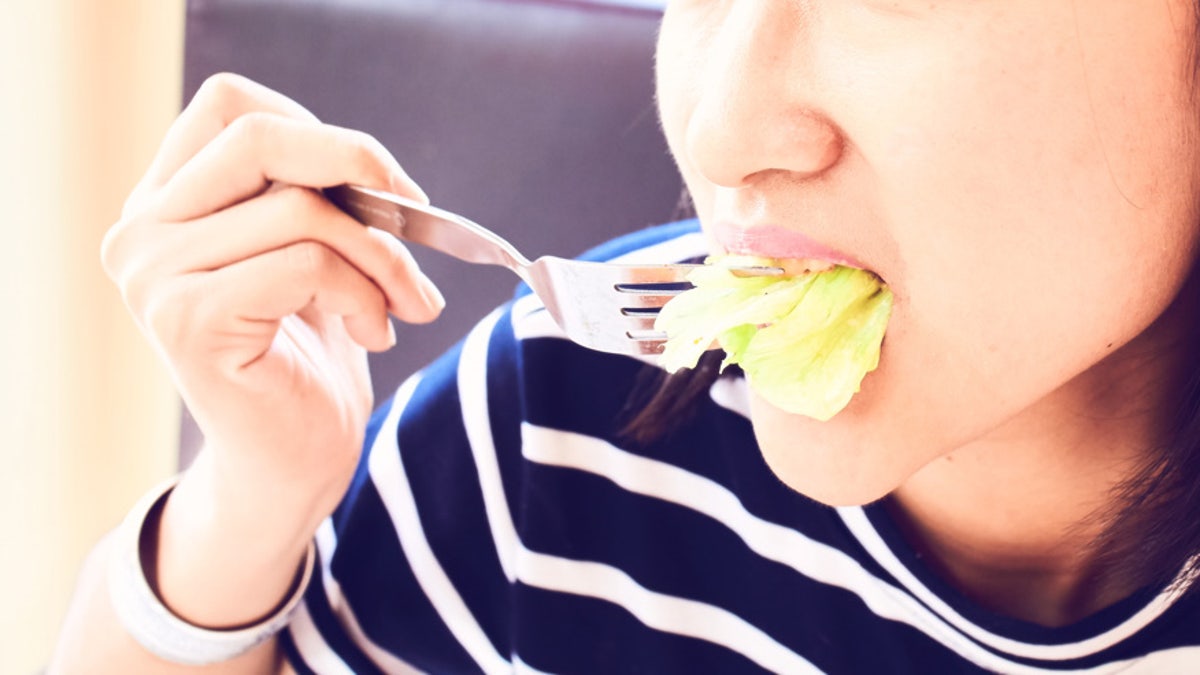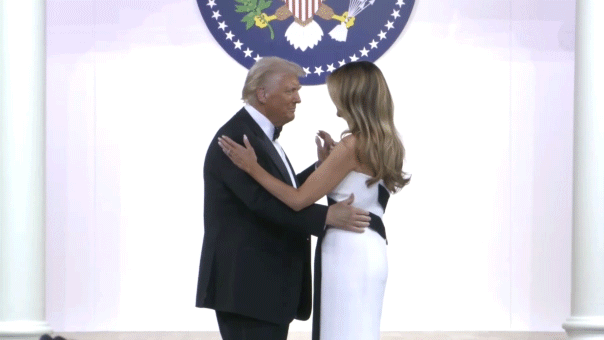A Florida-based etiquette expert has a bone to pick when it comes to many Americans' eating habits.
Jacqueline Whitmore of Palm Beach, Fla., told Fox News Digital this week that she's even compiled a list of "the 12 tackiest things people do at the dinner table" today.
The list is based on her observations over the years and time spent advising companies, organizations and individuals on an array of etiquette issues — including dining habits, workplace behavior and tipping practices at holiday time.
She said she's seen some rude behavior in her time — and that while many of her tips for turning bad habits into better practice may appear to be common sense, "courtesy" toward others isn't always so common today.
5 ETIQUETTE ERRORS YOU MUST AVOID IN YOUR NEW JOB
"Etiquette is more than knowing how to use the right knife and fork," Whitmore told Fox News Digital recently.
"I define it as the ‘art of knowing how to treat other people.’ In a nutshell, it's about being mindful of how your behavior affects others."

Good dining habits make good sense — check out the insights shared by an etiquette consultant based in Florida.
She said that people judge others based on their behavior in the workplace, in the community and in social situations.
The following, she said, are among the "tackiest" table errors she's seen.
ETIQUETTE EXPERT SAYS BRUCE WILLIS' DIAGNOSIS REMINDS US WHAT TO SAY AND NOT SAY WHEN OTHERS ARE ILL
If any of these sound painfully familiar — there's some good news here.
Solutions are included as well. Let's dive right in!
12 tacky table habits worth breaking
1. Talking with your mouth full
"Remember to swallow all of your food before you speak to others at the table," Whitmore advised.
And if someone asks a question after you've taken a bite — then "cover your mouth with your fingers to indicate that you’re still chewing," she said.

If you've just taken a bite and your dining companions ask you a question, "cover your mouth" to "indicate you're still chewing," said Whitmore. (iStock)
2. Cutting all of your food at once
"When you cut one bite at a time, you're more prone to eat slower," said Whitmore.
That way, she added, "you can enjoy every bite."
It's also just better manners all around.

Cut just one bite at a time, advised Florida-based etiquette consultant Jacqueline Whitmore. (iStock)
3. Eating before everyone has been served
"It’s polite to wait until everyone else at the table has been served their meal before you start eating," said Whitmore.
She said this applies "no matter how famished you are — or how worried you are about your food getting cold."
4. Monopolizing the conversation
"A conversation is like a tennis match. It’s better when two or more players are involved," said Whitmore.
This means, in a nutshell: "Listen more than you speak and focus on others. Ask engaging questions starting with, ‘Tell me,' as in — ‘Tell me, how did the two of you meet?’ or, ‘Tell me, how do you know the host?’"

Rather than diving in before everyone's been served, Whitmore said it's far better to "wait until everyone else at the table has been served before you start eating, no matter how famished you are."
5. Bringing up controversial subjects or making off-color jokes
"Keep the conversation light and engaging. Talk about subjects to which everyone can relate," said Whitmore.
"Controversial subjects and jokes often offend, dampen the mood and make others uncomfortable," she added.
"It's impolite to use your bread to sop up any lingering sauce."
6. Using the bread to clean your plate
While it's fine to "eat everything on your plate," Whitmore also said that "it’s impolite to use your bread to sop up any lingering sauce."
She also said, "In many Asian countries, leaving a little on your plate also indicates that you satisfied and are no longer hungry."

Keep those elbows off the table (as most moms advise!) — and use proper posture at the dinner table, one etiquette expert urged.
7. Double dipping
"Never eat from the communal dish and dip only once to avoid spreading germs," said Whitmore.
8. Putting your elbows on the table
In other words — Mom was right.
"Proper posture is important at the dinner table," pointed out Whitmore. "Sit up straight, avoid flapping your elbows when you’re cutting food and avoid leaning across the table or resting your elbows on the table."
THESE ARE THE BEST FOODS FOR YOUR HEART, EXPERTS SAY
9. Talking or texting during a meal
This is a big one. "When your cell phone is in sight, it indicates that you’re waiting for an important call," said Whitmore.
It's far better to "give your fellow diners your undivided attention," she said. "If you have to make or take a call, step away from the table."

Rather than texting during dinner and pulling your attention away from others, "give your fellow diners your undivided attention," said Whitmore. (iStock)
10. Drinking too much alcohol
This can "cause you to loosen up and forget your manners," she said.
"You may say or do something you might regret the next day. As the saying goes, ‘Loose lips sink ships.’ Be mindful of your alcohol consumption — especially if you have to drive home."
ETIQUETTE EXPERT: WE'VE OVERLOOKED LADY GAGA'S GREAT KINDNESS TOWARD LIZA MINNELLI
11. Eating too quickly
"If you’re a fast eater," advised Whitmore, "learn to adjust your pace to match those around you."
"It makes other people feel uncomfortable when they’re still eating while you’ve finished miles ahead of them."
Why does this matter? "It makes other people feel uncomfortable when they’re still eating while you’ve finished miles ahead of them," she said.
CLICK HERE TO GET THE FOX NEWS APP
12. Salting your food before tasting it
"It’s often considered an insult to your host or the chef if you salt your food without trying it first," said Whitmore.
"Some job recruiters even say it indicates you make judgments without knowing the facts," she added.








































